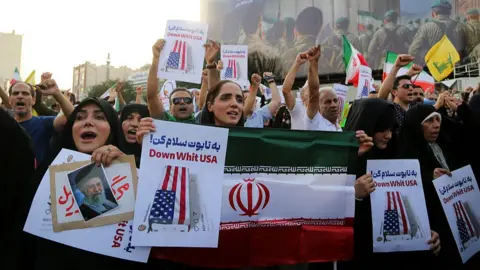ECOWAS Burkina Faso: Junta’s Election Delay Sparks Regional Tensions
ECOWAS Burkina Faso: Junta’s Election Delay Sparks Regional Tensions
The ECOWAS Burkina Faso junta has sparked regional concern after announcing the dissolution of the national electoral commission and the delay of upcoming elections. This decision has been met with strong opposition from civil society, political actors, and regional leaders. According to BBC.com, the move threatens to destabilize West Africa’s fragile democratic institutions and raises questions about the future of civilian governance in the country.

ECOWAS Responds to Burkina Faso’s Electoral Crisis
Following the junta’s decision to scrap the electoral commission, the Economic Community of West African States (ECOWAS) has issued a strong statement calling for a swift return to constitutional order. The regional bloc has threatened sanctions if the military rulers fail to commit to a civilian-led transition. As reported by Africanews.com, this decision could trigger a domino effect across the region, especially in Mali and Niger.
Why ECOWAS Took Immediate Action
West Africa has seen a surge in military coups over the past few years. The ECOWAS Burkina Faso junta’s decision to delay elections comes at a time when regional leaders are trying to restore democratic norms. Africanews.com highlighted how ECOWAS is under pressure to act decisively to prevent further democratic backsliding.
Regional Sanctions and Diplomatic Pressure
ECOWAS has already imposed travel bans on key military leaders in Burkina Faso and frozen national assets in regional banks. This pressure is intended to push the junta toward a civilian-led process and away from prolonged military rule.
Impact on Burkina Faso’s Democratic Future
The Junta’s 4-Year Transition Plan
The military rulers have announced a new timeline that would keep them in power for up to 4 years. This plan has been widely criticized by citizens and international observers who argue that such delays undermine national stability and development.
Civil Society Demands a Civilian Transition
Across Burkina Faso, protests have erupted, with citizens demanding that the military return power to civilians. Young activists and political leaders are calling for ECOWAS to take a stronger stand and support democratic institutions in the country.
International Reactions to the ECOWAS Burkina Faso Crisis
United Nations Warns of Escalating Instability
The United Nations has expressed concern over the situation in Burkina Faso, urging the junta to return to a civilian-led process. UN officials emphasized that prolonged military rule could fuel extremism and regional instability.
France and the EU Call for Democratic Return
European powers, including France and the EU, have urged the military rulers in Burkina Faso to restore democratic institutions. France, in particular, has expressed concern over the potential impact on regional security cooperation.
Images Proposed for Illustration


Image Keywords & Alt Text Suggestions:
- File Name: ecowas-burkina-faso-regional-leaders-meet-democratic-transition.jpg
Alt Text: ECOWAS Burkina Faso – Regional leaders meet to discuss democratic transition - File Name: ecowas-burkina-faso-military-meeting-ouagadougou.jpg
Alt Text: ECOWAS Burkina Faso – Military meeting in Ouagadougou
Internal Linking Suggestions
Related Article: Military Takeovers in West Africa – A Growing Trend
To gain deeper insight into how the ECOWAS Burkina Faso crisis fits into a broader pattern of military rule in West Africa, read our related article: Military Takeovers in West Africa – A Growing Trend. It explores how similar events in Mali and Guinea have affected regional stability and investment.
External Source Mentioned
SEO Keywords for Internal Linking
- ECOWAS Burkina Faso
- Military junta Burkina Faso
- ECOWAS political crisis
- Burkina Faso democratic transition
- West Africa military rule
- Burkina Faso electoral commission
- ECOWAS sanctions on Burkina Faso
- Burkina Faso governance
- ECOWAS and democratic institutions
- Military takeover in West Africa
Source of the Article
Source of the article : https://www.bbc.com